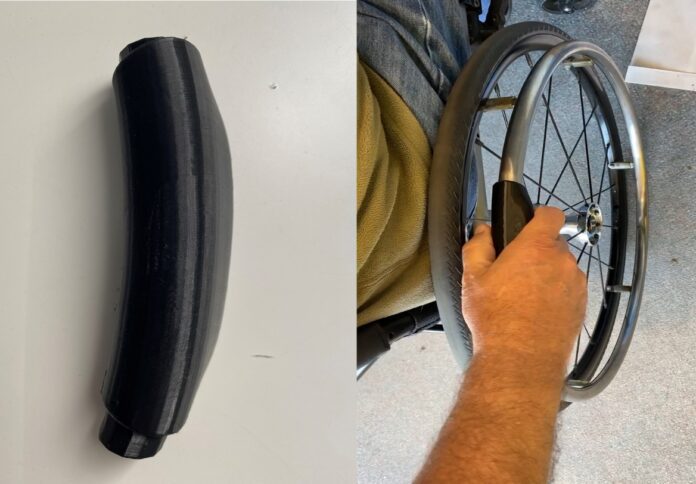
Advanced Robotics for Manufacturing Hub has collaborated with various organisations to provide its expertise in design, additive manufacturing, and robotics for the Spinal Life Australia (SLA) project in an effort to increase remote care solutions for people with disability.
In a media release, ARM Hub said Hopkins Centre, SLA, and Advanced Queensland Fellow Dr Camila Shirota, a Lecturer at Griffith University, helped in building prototypes and testing 3D-printed hand grippers for wheelchairs in a span of 18 months.
In particular, at the SLA Healthy Living Centre in Cairns, Far North Queensland, the project partners took part in four multidisciplinary innovation workshops to co-design solutions for persons with spinal cord injuries.
“This project uses a co-design process to develop pertinent solutions of AT (assistive technology) and helps to document the areas of rehabilitation and disability services that are vulnerable to disruption,” ARM Hub stated.
The stakeholders were able to create a variety of 3D-printed hand grippers using workshop input and further improved them after testing them on a wheelchair user.
Over this process, ARM Hub said the collaborators developed seven unique designs using a variety of materials, including silicon, PLA, ABS, and carbon fibre filament.
In the fourth workshop, wheelchair users at SLA Cairns tested each design to analyse, evaluate, and guide future development.
ARM Hub said wheelchair users were able to exhibit a definite interest in the product, and suggestions for future product improvement were made based on user input.
Workshop outcomes also demonstrated that customers particularly enjoyed being a part of the process and being able to customize desperately needed products to their unique needs.
Manufacturers in relevant areas were recruited to participate – one in all-terrain robotics, one in furniture, and two in 3D printing, ARM Hub said.
Design representatives are said to have collaborated with clinicians, people with spinal injuries and a family member, and members of the research team.
A variety of issues were discovered during the innovation workshops, and the creation of individually tailored wheelchair hand grippers that are weather-safe was the desired design.
“This is a critical issue for wheelchair users, who can push their hand rims 2000-3000 times per day and RSI injuries are common,” ARM Hub noted.
“Matching the hand rim profile to the user can increase efficiency,” the organisation added.
ARM Hub said this project was made possible by the Queensland Government’s Essential Goods and Supply Chain Program support for manufacturers to make essential goods, consumables, and devices.



















